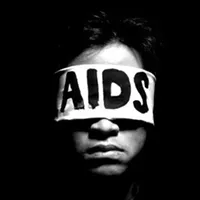Tuesday, June 2, 2009
Hard News Common myths about HIV debunked
Posted By Mustang Sally, Mayor of Bang Town on Tue, Jun 2, 2009 at 12:30 PM
Despite advances in HIV medicine and the wealth of education that’s available, people still have misconceptions about the virus that causes AIDS. So, Creative Loafing headed to the Metrolina AIDS Project to separate fact from fiction.
MAP project coordinators Emerson Rojas and Darrin Johnson sat down with us and answered questions about some common misconceptions about HIV/AIDS.
1. Why are we still seeing high numbers of new HIV cases when there is so much information out there about prevention?
Rojas: When it comes to safe sex, we see a lot of excuses. There’s not a way to say "I’m infected." And we don’t have a culture of getting tested, that’s one of the things. There is a stigma surrounding the people who are already positive. Then, finally, we have people not using condoms correctly.
Johnson: There are a number of reasons why the rates continue to increase. One reason is health care. People don’t have adequate access to health care and there are cultural differences, a lot of gender norms and in some cultures women can’t advocate for themselves and negotiate condom use.
2. You have a lot of people who look at Magic Johnson and say, “He’s HIV positive, and he’s healthy — so, if I get it, I’ll be fine.”
Rojas: Almost in every single HIV 101 class that we’ve had in the past, people always use him as a reference. He’s famous; he might have tons of money and access to a private doctor. The reality is that he’s infected; there’s nothing he can do to get rid of the virus. He might have access to top of the top medicine, but the reality is at the end of the day, he doesn’t have to worry about a case manager trying to get his prescriptions filled though ADAP. He probably can buy them all at one time. He probably has a personal gymnasium and a personal chef to cook for him. But he’s still infected and that’s the bottom line.
Johnson: Again, it relates to access to health care. The general population can get access to these types of insurance. The majority may not be able to afford it. It’s about how you take care of yourself to manage the virus and a lot of people just don’t have the capability to do in their everyday life.
3. You have people who believe they are practicing safe sex and they are using condoms properly, so they can’t get infected. What do you say to those people?
Rojas: We do counseling and testing here at Metrolina and we talk to people and do a risk assessment and they say in the beginning they were using condoms, but it got boring, and I’ve been with her or with him for a number of times, so I guess it’s OK. We’re just using any excuse not to use condoms. We don’t want to accept the fact that we’re putting lives at risk every single time we chose not to use a condom.
Johnson: Anybody who is sexually active, we’re all at risk.
4. HIV and AIDS is becoming a black woman’s disease and I’m fine as long as I don’t sleep with anyone in that subset.
Johnson: Statistics just verify the risk factors, but it doesn’t say that a certain population is not at risk. Maybe they are being tested more now than any other population and you don’t know the reason behind the statistics, you just see them. That feeds into the misconceptions that people have. They don’t take the opportunity to learn the information, they just see it and go off what they see and what they hear and spread misinformation.
Rojas: This is what I like to tell people, you should assume that you are the only negative person in the world. That way you will make sure that every single time you will use a condom. If you use a condom correctly, you are isolating yourself from the virus.
5. But I’m safe, I don’t have anal sex, he pulls out before he ejaculates in me.
Johnson: A lot of people don’t know these things. They may hear it from people in their family and it just trickles down to the youth. People spread this misinformation.
Rojas: In the gay community, we have what is called a top or bottom. The one on top is the one giving and the one on the bottom is the one receiving. Some people think that, "I’m the top, and I will never get HIV or an STD because I’m the one giving." Both are exposed.
Johnson and Rojas: The bottom line is that many people have this misconception and it comes from other misleading information.
Do you need to be tested? MAP offers free testing every Friday from 5 p.m. to 7 p.m. at 127 Scaleybark Road.
Speaking of...
Comments (4)
Showing 1-4 of 4
Latest in Bang Town
More by Mustang Sally, Mayor of Bang Town
-

Real lap dances, fake money
Dec 15, 2011 -

Is there a sex life after a postitive HIV test?
Dec 15, 2011 -

Want to live a happy life? Have sex as a senior citizen
Dec 13, 2011 - More »









